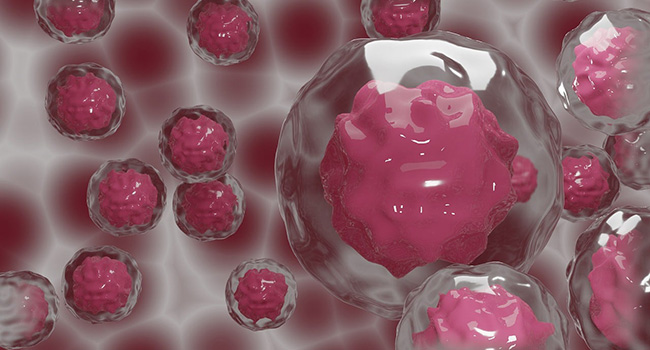
Decompensated liver cirrhosis is an advanced and severe stage where the liver's function has significantly deteriorated. Cirrhosis is characterized by scarring and liver damage due to various underlying causes, such as chronic alcohol abuse, viral hepatitis, or nonalcoholic fatty liver disease.
In decompensated cirrhosis, the liver cannot perform its essential functions adequately, leading to severe complications. These may include ascites (fluid accumulation in the abdomen), hepatic encephalopathy (brain dysfunction due to the liver's inability to remove toxins), jaundice, and increased risk of bleeding and infections. Decompensated liver cirrhosis requires immediate medical attention and management to prevent life-threatening complications.
Human Umbilical Cord Blood-Derived Mesenchymal Stem Cells
Human umbilical cord blood-derived mesenchymal stem cells (HUCB-MSCs) are special cells in the umbilical cord blood. They can uniquely differentiate into various cell types, such as bone, cartilage, and fat cells. UCB-MSCs are promising for regenerative medicine and have shown potential in treating various diseases and injuries due to their anti-inflammatory and immune-modulating properties.Clinical Trial
Researchers conducted a trial to understand the impact of HUCB-MSC transplantation (HUCB-MSCT) on the long-term outcomes of patients with decompensated liver cirrhosis (DLC). While HUCB-MSCT had positive short-term effects on DLC patients, its long-term benefits must be clarified. The study included 201 hospitalized patients with decompensated cirrhosis. Among them, 36 patients received HUCB-MSCT (SCT group), and 165 patients did not (non-SCT group).After conducting propensity score matching (PSM), the groups were balanced, with 36 patients in the SCT group and 72 in the non-SCT group. The researchers examined the primary outcome, overall survival (OS), and secondary outcomes, including 3-year and 5-year survival rates and the occurrence rate of hepatocellular carcinoma (HCC).
Results
The 3-year and 5-year survival rates in the SCT group were significantly higher than those in the non-SCT group, at 83.3% versus 61.8% and 63.9% versus 43.6%, respectively. The median OS time for the SCT group was 92.50 months, compared to 50.80 months for the non-SCT group. HUCB-MSCT was identified as an independent beneficial factor for patient OS, indicating that it could improve long-term survival.Notably, the occurrence rate of HCC did not show a significant difference between the two groups, suggesting that HUCB-MSCT did not increase the risk of developing hepatocellular carcinoma.
